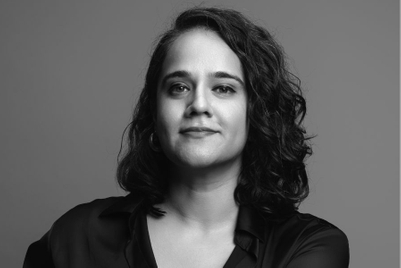
I love WeChat. Really. Of the commentators out there, I have probably been among those giving it the most credit.
Much of the credit is deserved. WeChat is responsible for 34% of mobile usage in China. Most of my communications—work, family and personal—happens on WeChat. Most impressive, to me, is that it’s revolutionising payments.
But I still believe it gets too much credit. It gets credit for things it didn’t do. I’m talking about brand-building and other marketing activity.
We hear about how hundreds of products were sold in a few minutes on WeChat, how brands are building up millions of followers, and so on. There’re tons of articles like the one below, for example.

The brand worked with an influencer, Becky Li (黎贝卡), to sell 100 limited-edition turquoise Mini Coopers worth RMB285,000 (US$42,215) on WeChat in five minutes.
Yet, for me this is testament to the strength of the Mini brand—built up over decades and on multiple channels—rather than the popularity of the influencer.
Would this work for a little-known domestic Chinese car brand? No f*@#ing way.
So what really happened? I drew the cartoon at the top of this page, heavily inspired by Marketoonist, to highlight what was happening behind the scenes:
Oftentimes, the result of this hype is because brand-builders are obsessed about WeChat, at the expense of other channels. They attribute much of the value they see on the platform, to the platform itself. Yet much of this marketing value is created on other channels.
In Mini’s case, here are some examples of the brand being built in China on multiple channels over time. Here's a celebrity and content co-op that saw Jing Boran and other Chinese actors explore what it means to be a modern gentleman in China today. The brand worked with Esquire magazine to get some beautiful content, featuring Mini in frame, out onto both online and offline channels.

Here’s an example of their work with actual Mini owners, who were invited to a Shanghai event styled as a drive-in cinema.

Even The Italian Job movie is almost like a repurposed advertisement for the Mini Cooper.

For every bit of data that tells us the importance of WeChat, there’re some other bits that tell us the importance of other channels. For example, 2016 data from KPMG ranks social posts, many of which would be in WeChat, as one of the lowest purchase triggers in China. I still hold this view. People who make the 'buy' decision in WeChat campaigns are those who have already had great exposure to the brand. There is no way a weak brand can turn itself around simply by deploying WeChat.
So, WeChat is getting credit for things it doesn’t do in terms of marketing and brand-building. Much of the value shown on WeChat is built outside WeChat, and over time. Most of the WeChat cases I can think of are due to something that happened off the app. The best WeChat cases are not just WeChat cases; the best WeChat cases are the combination of good CRM systems, good offline experiences, good ads and good products.
Instead of focusing on WeChat, which is often the last mile, we need to focus on wider ecosystems and longer-term branding. Spending money on something called “WeChat” will not necessarily deliver value in WeChat.
You don’t need a WeChat strategy. You need a strategy that works well for WeChat.
 Jeremy Webb is vice president and head of Social@Ogilvy Beijing. Jeremy Webb is vice president and head of Social@Ogilvy Beijing. |


.jpg&h=334&w=500&q=100&v=20250320&c=1)

.jpg&h=334&w=500&q=100&v=20250320&c=1)
+(1).jpg&h=334&w=500&q=100&v=20250320&c=1)

.jpg&h=334&w=500&q=100&v=20250320&c=1)



.jpg&h=334&w=500&q=100&v=20250320&c=1)


.png&h=268&w=401&q=100&v=20250320&c=1)

.jpg&h=268&w=401&q=100&v=20250320&c=1)


